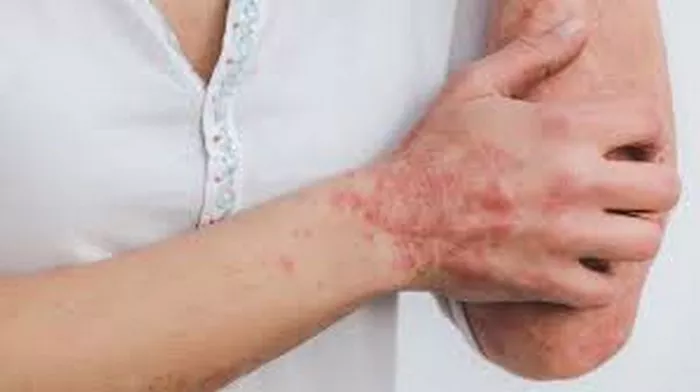Psoriatic arthritis (PsA) is a chronic inflammatory condition that affects joints and is often associated with psoriasis, a skin disorder characterized by red, scaly patches. While joint pain and skin symptoms are hallmarks of PsA, there are also other potential manifestations of this condition that may be less widely recognized, such as swollen lymph nodes. Understanding the relationship between psoriatic arthritis and swollen lymph nodes requires a closer look at the immune system’s response and the interconnected nature of inflammatory diseases.
The Link Between Psoriatic Arthritis and Swollen Lymph Nodes
Lymph nodes are an essential component of the body’s immune system, acting as filters for lymph fluid and playing a crucial role in immune response. When lymph nodes become swollen or enlarged, it typically indicates an immune response to an infection, injury, or inflammation in the body.
In psoriatic arthritis, the immune system is dysregulated, leading to chronic inflammation primarily in the joints and skin. However, this inflammatory response can extend beyond these areas, affecting other parts of the body, including the lymph nodes. Although not as common or prominent as joint and skin symptoms, some individuals with psoriatic arthritis may experience swollen lymph nodes as part of their disease course.
Understanding the Mechanism
The exact mechanism by which psoriatic arthritis can cause swollen lymph nodes is not fully understood. However, several factors contribute to this phenomenon:
1. Inflammation: Psoriatic arthritis is characterized by systemic inflammation. This inflammation can trigger an immune response in lymph nodes, leading to their enlargement.
2. Immune Response: The immune system’s response to ongoing inflammation in PsA can involve activation and enlargement of lymph nodes as part of the body’s attempt to regulate the inflammatory process.
3. Associated Conditions: Psoriatic arthritis often coexists with other conditions that can independently cause lymph node enlargement, such as infections or inflammatory diseases.
Clinical Presentation
When swollen lymph nodes occur in the context of psoriatic arthritis, they are usually found in areas close to affected joints or skin lesions. Common locations for swollen lymph nodes in PsA include the neck, groin, or underarms. The nodes may feel tender to the touch and can vary in size from small to noticeably enlarged.
It’s essential to differentiate lymph node swelling related to psoriatic arthritis from other potential causes, such as infections or malignancies, through a thorough medical evaluation by a healthcare provider.
Research and Clinical Studies
Although research specifically focusing on the relationship between psoriatic arthritis and lymph node swelling is limited, studies have shown associations between PsA and lymphadenopathy (enlarged lymph nodes). One study published in the Journal of Rheumatology reported that lymphadenopathy was present in a subset of PsA patients, particularly those with more severe joint involvement.
Additionally, research has highlighted the broader systemic nature of psoriatic arthritis, emphasizing its potential to impact various organs and tissues beyond joints and skin. This systemic involvement underscores the importance of considering swollen lymph nodes as part of the disease spectrum in certain individuals with PsA.
Clinical Management
When managing psoriatic arthritis patients with swollen lymph nodes, healthcare providers must take a comprehensive approach. This includes:
1. Medical History and Evaluation: A detailed medical history, physical examination, and assessment of symptoms are crucial for accurate diagnosis and management.
2. Diagnostic Testing: Laboratory tests, including blood work and imaging studies, may be necessary to rule out infections, malignancies, or other inflammatory conditions.
3. Treatment Plan: Treatment of swollen lymph nodes in the context of psoriatic arthritis focuses primarily on controlling underlying disease activity. This may involve disease-modifying antirheumatic drugs (DMARDs), biologics, or targeted therapies to manage inflammation and reduce systemic effects.
4. Collaborative Care: Multidisciplinary care involving rheumatologists, dermatologists, and other specialists ensures comprehensive management of psoriatic arthritis and associated manifestations.
Conclusion
In conclusion, while joint pain and skin symptoms are the hallmark features of psoriatic arthritis, swollen lymph nodes can also occur in some individuals with this condition. The underlying mechanism likely involves the systemic inflammatory nature of PsA and its impact on the immune system. Although less common and often less recognized, swollen lymph nodes in PsA patients warrant careful evaluation to differentiate them from other potential causes and ensure appropriate management.
Continued research into the pathophysiology of psoriatic arthritis and its systemic manifestations, including lymph node involvement, is crucial for advancing our understanding and optimizing patient care. Healthcare providers play a vital role in recognizing and addressing these manifestations to improve outcomes and quality of life for individuals living with psoriatic arthritis.
Related Topics:

























